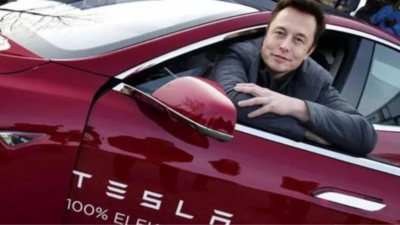Foxconn sells Lordstown plant for $88 million but keeps EV production running while expanding US growth plans | Business

Taiwanese manufacturing giant Foxconn (2317.TW) has finalised the sale of its former Lordstown, Ohio factory for $88 million, as revealed in recent regulatory filings. The facility’s new owner, Crescent Dune LLC, has been described by Foxconn as an ‘existing business partner’, indicating a continued strategic relationship. Despite the transfer of ownership, Foxconn confirmed it will remain an occupant of the plant, ensuring ongoing production and operations remain unaffected. The company further announced plans to reinvest the sale proceeds into US-based initiatives, reinforcing its commitment to building a long-term industrial and manufacturing presence in the United States. The deal reflects Foxconn’s evolving strategy to optimise assets while supporting its growth in electric vehicles and advanced manufacturing sectors.
Foxconn sells Lordstown plant while boosting US EV plans
The Lordstown site has a long history in American automotive manufacturing. It previously belonged to Lordstown Motors Corp, an electric vehicle startup that acquired the property from General Motors after GM closed its plant there in 2019. Lordstown Motors aimed to revive the region’s auto industry with its electric pickup truck program. However, due to financial struggles, production delays, and eventual bankruptcy, Lordstown Motors sold the facility to Foxconn in 2022 for $230 million as reported by Reuters.For Foxconn, known globally for assembling consumer electronics like the iPhone, the acquisition marked its entry into electric vehicle manufacturing—a strategic move to diversify beyond electronics and capitalise on the growing EV market.
Why Foxconn chose Crescent Dune as existing partner for its Lordstown sale
The buyer, Crescent Dune LLC, is described by Foxconn as an ‘existing business partner’, but little is publicly known about its operations or specific business model. By transferring ownership to a trusted partner while remaining a tenant, Foxconn benefits from the facility without bearing the long-term cost of ownership.This sale-and-leaseback arrangement is common in manufacturing, allowing companies to unlock capital tied up in real estate and redirect it into core business expansion. For Foxconn, this means focusing funds on scaling electric vehicle production, research, and emerging US manufacturing projects.
Foxconn continues EV production at Lordstown after $88 million sale
Despite the ownership change, Foxconn emphasised that its current workforce and operations will remain intact. The company will continue using the facility to support electric vehicle programs, component manufacturing, and advanced production initiatives. This approach minimises operational disruption and ensures that the strategic objectives behind the initial Lordstown acquisition remain in place.At first glance, the difference between the $230 million purchase price in 2022 and the $88 million sale price may raise eyebrows. However, this is part of a long-term financial and operational restructuring strategy. By selling the real estate and reinvesting in its high-growth business segments, Foxconn can focus resources on innovation, partnerships with EV startups, and digital manufacturing infrastructure instead of tying capital in physical property ownership.Lordstown and surrounding areas have faced economic turbulence since General Motors shuttered operations, leading to job losses and economic uncertainty. The arrival of Foxconn initially generated optimism, particularly for skilled labor and EV industry growth. With the company continuing operations at the same facility, the local economy may still benefit from jobs and advanced manufacturing expertise. Additionally, partnerships like these often attract ancillary businesses and encourage regional supply chain growth.
Foxconn expands US footprint with focus on EVs and advanced manufacturing
Foxconn has long signalled plans to expand its US footprint beyond electronics. Its entry into electric vehicles, semiconductors, and digital infrastructure manufacturing demonstrates a strategic shift toward next-generation industries. By divesting real estate while remaining operational, Foxconn is showing a preference for flexibility and scalability in its US strategy.The move aligns with Foxconn’s collaborations with EV startups and established automakers, leveraging its experience in high-volume, precision manufacturing to serve one of the world’s fastest-growing industries.





